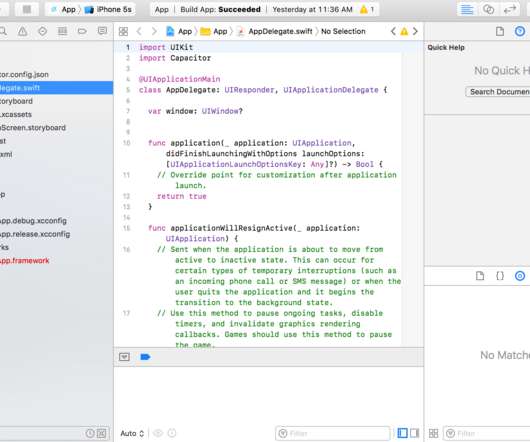MachineX: Two Parts of Association Rule Learning
DZone
MAY 30, 2018
In our previous blog, MachineX: Layman's Guide to Association Rule Learning, we discussed what Association rule learning is all about, and as you can already tell, with a large dataset, which almost every market has, finding association rules isn't very easy. For these purposes, we introduced measures of interestingness , which were support, confidence, and lift.














Let's personalize your content